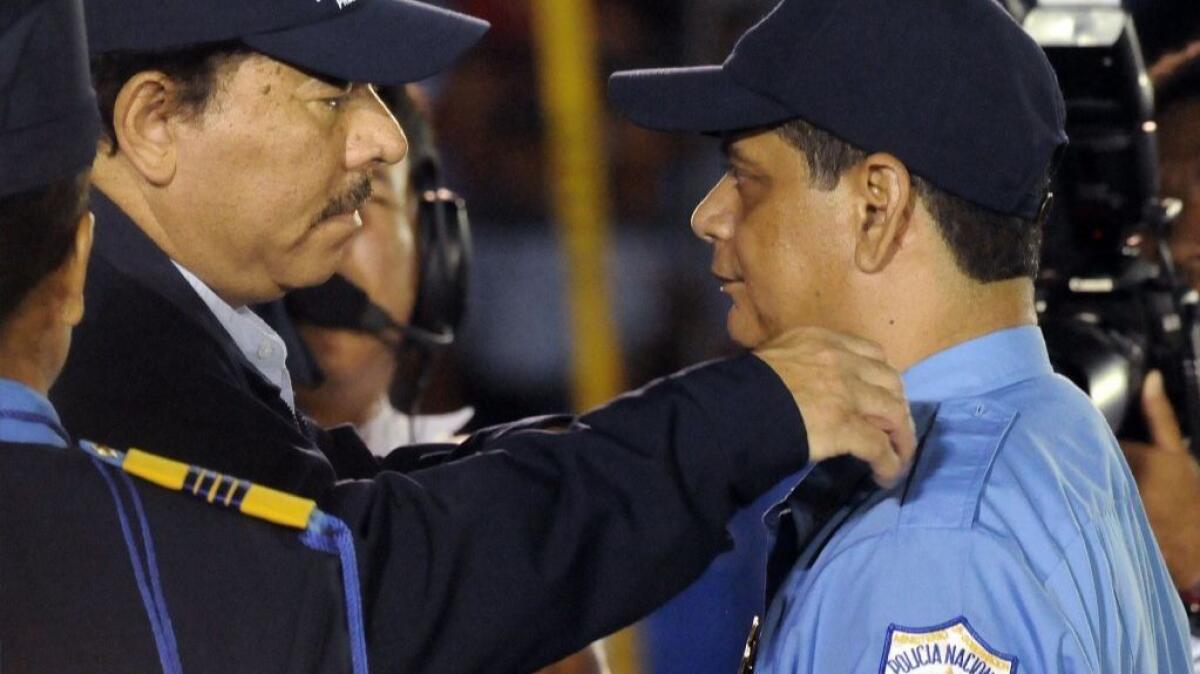U.S. slaps economic sanctions on three top Nicaraguan officials

Reporting from Washington — Stepping up pressure on Nicaragua, the United States on Thursday placed sanctions on three senior Nicaraguan officials, including a top police commander, accusing them of attacking anti-government protesters and other abuses.
The action is intended to hold the government of President Daniel Ortega accountable for months of violent crackdowns on demonstrators that have killed more than 200 people, including children and youths, administration officials said.
Opponents accuse Ortega and his family of widespread corruption and of using the presidency to enrich themselves illegally. Ortega has stacked the legislature and judiciary with allies and orchestrated a constitutional reform to allow himself to rule practically indefinitely.
A month ago, amid rising international condemnation of the Ortega government, the Trump administration took its first punitive action by ordering U.S. visas be revoked from an undisclosed number of Nicaraguan officials.
On Thursday, the Treasury Department sanctioned Francisco Javier Diaz Madriz, Nicaragua’s national police commissioner; Fidel Antonio Moreno, a senior official in the Managua mayor’s office; and Jose Francisco Lopez Centeno, president of the state oil company, who oversees work with the Venezuelan energy company, which has long given inexpensive gasoline to Nicaragua.
The sanctions mean any assets the three men have in the United States will be frozen, and U.S. citizens are barred from business transactions with them or any companies in which they have 50% or more ownership.
“The violence perpetrated by the government of Nicaraguan President Daniel Ortega against the Nicaraguan people and the efforts of those close to the Ortega regime to illicitly enrich themselves is deeply disturbing and completely unacceptable,” said Sigal Mandelker, Treasury undersecretary for terrorism and financial intelligence.
The three were sanctioned under the 2012 Global Magnitsky act that allows for targeting individuals accused of human rights abuses or corruption. It was originally designed to punish Russian officials blamed for the death in prison of Russian lawyer Sergei Magnitsky.
For more on international affairs, follow @TracyKWilkinson on Twitter
More to Read
Sign up for Essential California
The most important California stories and recommendations in your inbox every morning.
You may occasionally receive promotional content from the Los Angeles Times.











